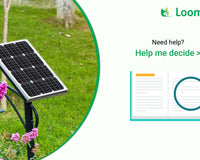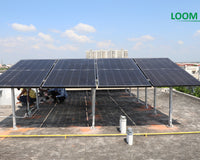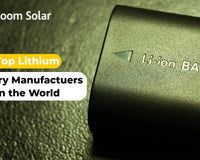Generators and lithium batteries are two prominent options for powering industrial operations, each with distinct advantages and drawbacks. The choice between the two depends on factors like energy requirements, portability, environmental considerations, and cost-effectiveness.
Generators are reliable sources of power, they are particularly suited for applications demanding high energy consumption and continuous operation, such as large-scale manufacturing or construction sites. Generators can be powered by various fuels, including diesel, natural gas, or propane. However, they produce noise, emissions, and require ongoing fuel supply and maintenance, making them less eco-friendly and potentially less cost-effective in the long run.
Lithium batteries, on the other hand, have gained prominence due to their portability, efficiency, and cleaner operation. They are especially advantageous for industries off-grid power solutions. Lithium batteries store and discharge electricity without emissions, noise, or the need for refueling, making them environmentally friendly and suitable for indoor applications. Their compact size allows for easy installation and reduced space requirements.
The decision between generators and lithium batteries hinges on the specific needs of the industry. For industries requiring continuous, high-power output and facing noisier environments or having limited access to electrical infrastructure, generators might be the better choice. Conversely, industries focused on minimizing emissions, noise pollution, and maintenance efforts while prioritizing flexibility and mobility might lean towards lithium batteries.
In some cases, a hybrid solution might be optimal, combining the strengths of both technologies. This approach could involve using generators as backup power sources during peak demand periods and utilizing lithium batteries for smoother operation during quieter times.













1 comment
Kevintal
what does cialis do cialis manufacturer coupon acquistare cialis